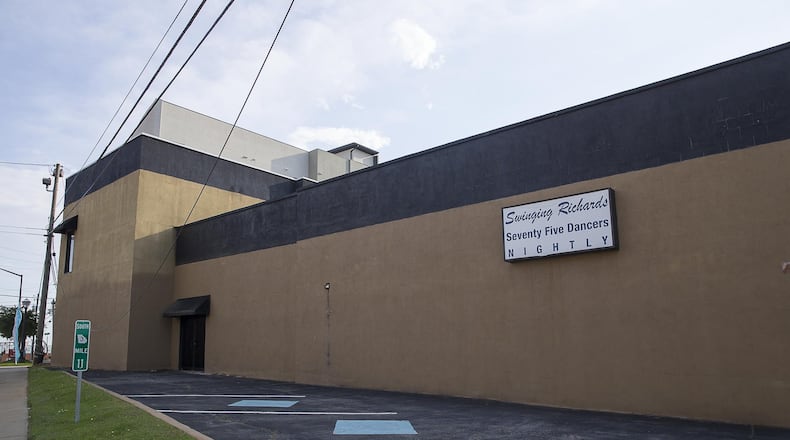The parent company of adult entertainment venue Swinging Richards has filed for bankruptcy protection, a year after a federal court ordered it to pay former dancers more than $800,000 as part of a labor dispute.
That judgment was one of two in the last five years levied against the owner of the night club for not paying dancers at least minimum wage. Richards, on Atlanta’s west side, bills itself as “America’s #1,” “All male, All nude” gay strip club.
Since late 2013, 1400 Northside Drive, Inc., a business owned by Cummin Beveridge Jones II, has been found in violation of the Fair Labor Standards Act, according to court documents.
A federal court found in May 2018 that the company had illegally required at least five dancers to work for tips only and to pay various “fees” in order to work shifts at the club. The “house fee,” “t-shirt fee,” or “DJ fee,” could be as much as $100 a shift. A jury found the fees amounted to “kickbacks,” a violation of federal labor law.
Jones’s company was ordered to pay about $820,000 in “lost wages” to the five men. Mitchell Benjamin, an attorney for the men, said Wednesday that they’d collected $20,000 of the award, but the payments from Jones’s company slowed earlier this year.
Benjamin filed a garnishment against Swinging Richards’ owner about a month ago. Then last week, Jones sought chapter 11.
“I kind of wish his (Jones) lawyer had called us to make a payment schedule to forgo collection efforts, but they chose to file bankruptcy instead,” Benjamin said. “We’ll follow this closely and make sure all of his assets are accounted for.”
Paul Marr, an attorney for Jones, said in an email to The Atlanta Journal-Constitution that he could not immediately provide comment on the case.
The club has remained open while the court case proceeds. In chapter 11, a debtor typically proposes a reorganization that pays creditors over time without shutting down the business.
In 2014, more than a dozen dancers at Richards filed a similar class action suit against the club. The men also claimed Richards had engaged in wage theft, forced them to sign non-compete agreements, and had them remove all their clothes so club managers could “inspect” them before they were hired to make sure they met the club’s “standards.”
That case was settled in 2017, with attorneys in the case getting $453,333 in fees and an additional $58,916 in out-of-pocket expenses, according to court filings. The final settlement court document did not say how much each plaintiff received in the case.
About the Author
Keep Reading
The Latest
Featured



